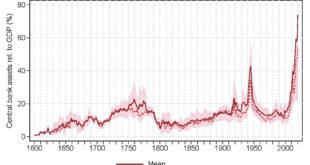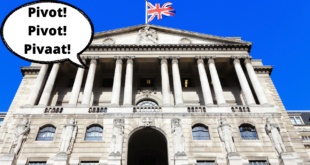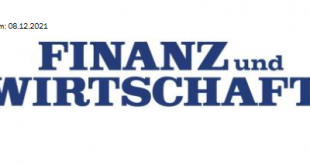JP Koning writes: An interesting side point here is that Canadians don’t forfeit their privacy rights by giving up their personal information to third-parties, like banks. We have a reasonable expectation of privacy with respect to the information we give to our bank, and thus our bank account information is afforded a degree of protection under Section 8 of the Charter. My American readers may find this latter feature odd, given that U.S. law stipulates the opposite, that Americans...
Read More »Central Bank Balance Sheets, LOLR Safety Nets, and Moral Hazard
Niall Ferguson, Martin Kornejew, Paul Schmelzing and Moritz Schularick in CEPR dp 17858: From the introduction: … time and again, central banks deployed their power to create liquidity in a bid to insulate economies from disasters. … first began to be linked to geopolitical tail events during the 17th and 18th centuries – occurring with increasing regularity during wars and revolutions –, … the context of central bank liquidity support gradually but consistently shifted...
Read More »The Economist on CBDC—and SVB
The Economist refers to our work in the `Free Exchange’ section: But some argue banks would work fine if the public switched their deposits for central-bank digital currencies, so long as the central bank stepped in to replace the lost funding. “The issuance of [such currencies] would simply render the central bank’s implicit lender-of-last-resort guarantee explicit,” wrote Markus Brunnermeier and Dirk Niepelt in 2019. This scenario seems to have partly materialised since the failure...
Read More »Plans for a Deposit Token in Switzerland
Swiss Banking proposes a “Deposit Token,” New Money for Switzerland. This white paper focuses on the question of how banks can best support the Swiss economy when it comes to settling transactions in digital assets and executing payments in a digitalised economy. As the digital transformation sweeps through the economy and society at large, it requires support from efficient, generally accepted and secure means of payment. Against this background and considering developments such as the...
Read More »“Money and Banking with Reserves and CBDC,” UniBe, 2022
UniBe Discussion Paper 22-12, October 2022. PDF. We analyze retail central bank digital currency (CBDC) in a two-tier monetary system with bank deposit market power and externalities from liquidity transformation. Resource costs of liquidity provision determine the optimal monetary architecture and modified Friedman (1969) rules the optimal monetary policy. Optimal interest rates on reserves and CBDC differ. A calibration for the U.S. suggests a weak case for CBDC in the baseline but a...
Read More »Ross Geller inspires Bank of England policy
This morning the UK pound slumped as one of the world’s oldest central banks pressed hard on the panic button. The Bank of England was seen to be shouting ‘Pivot! Pivot! Pivaat!’ as they announced they would temporarily suspend their programme to sell gilts and will instead buy long-dated bonds. In a statement, the bank said that they would be embarking on a “temporary and targeted” bond buying operation. Although we expect it to be about as temporary and as...
Read More »David Graeber’s “Debt”
Goodreads rating 4.19. Graeber’s book contains many interesting historical observations but lacks a concise argument to convince a brainwashed neoclassical economist looking for coherent arguments on money and debt. After 60 pages, 340 more seemed too much. Chapter one: … the central question of this book: What, precisely, does it man to say that our sense of morality and justice is reduced to the language of a business deal? What does it mean when we reduce moral obligations to debts? …...
Read More »“Digitales Notenbankgeld – und nun? (CBDC—What Next?),” FuW, 2021
Finanz und Wirtschaft, December 8, 2021. PDF. I draw some conclusions from the CEPR eBook on CBDC, namely: Banks will change, whatever happens to CBDC. The main risk of retail CBDC is not bank disintermediation. CBDC may not be the best option even if it has net benefits. It should be for parliaments and voters, not central banks, to decide about the introduction of CBDC. [embedded content] You Might Also Like...
Read More »“Digitales Notenbankgeld – und nun? (CBDC—What Next?),” FuW, 2021
Finanz und Wirtschaft, December 8, 2021. PDF. I draw some conclusions from the CEPR eBook on CBDC, namely: Banks will change, whatever happens to CBDC. The main risk of retail CBDC is not bank disintermediation. CBDC may not be the best option even if it has net benefits. It should be for parliaments and voters, not central banks, to decide about the introduction of CBDC.
Read More »“Reserves for All: Political Rather Than Macroeconomic Risks,” CEPR, 2021
Chapter 5 in the CEPR eBook, November 24, 2021. HTML. From the conclusion: From a macroeconomic perspective, central banks can largely neutralise the consequences of CBDC. What is highly uncertain, however, is whether they would choose to do so – the political risks of ‘Reserves for All’ are first-order. The decision for or against CBDC thus should not only reflect the assessment of economic trade-offs, but also whether societies are confident in their ability to efficiently manage...
Read More » Swiss Economicblogs.org
Swiss Economicblogs.org



